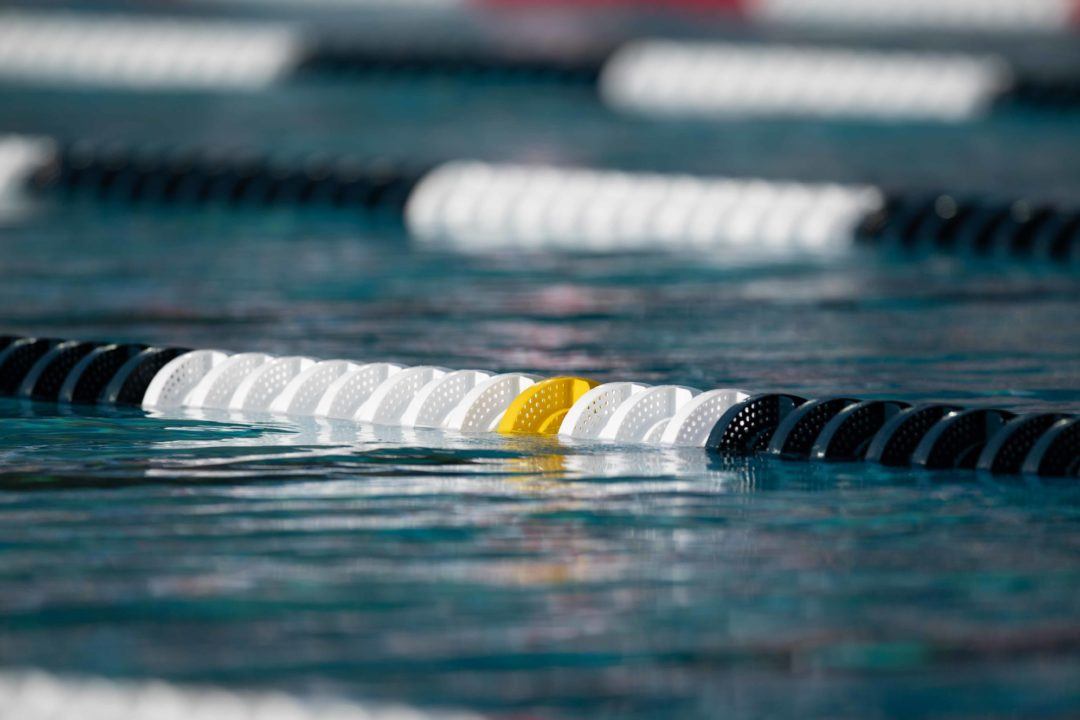If you read Swimswam with any regularity (Come on, you should be!), than you know by now how important the mind is when it comes to swimming performance, as there have been numerous people who have written some fantastic content discussing the topic, providing swimmers and coaches with enlightening insight as to how they can help themselves or their swimmers to develop the kind of mindset necessary to perform their best.
Today, I want to provide you with the core concepts I discuss with my NCAA and National Team level swimmers when we talk about how to foster the best kind of mindset possible for meet day. To help my swimmers create a strong, positive, efficient, high-performance mindset, I have them utilize what I like to call The Five Performance Priorities. You can think of these things as a kind of mental check-list; every time you go to swim, you want to utilize these 5 concepts and put each of them into practice. They are as follows:
#1: Process – Going into each race, you don’t think about the potential outcome, the time you want to get, or the cut you need to make. You only think about how you’re going to perform your swim. You only focus on swimming your best race possible and how you’re going to execute each part of your race to the best of your ability, nothing more.
#2: Presence – Going into each race, you only think about that race. You’re not thinking about previous races and you’re not thinking about future races. In your mind, the race you’re about to swim is that only race that exists and you don’t allow your mind’s focus to be fixed on anything except the race that’s directly in front of you.
#3: Enjoyment – Going into each race, you make sure that you remind yourself to have fun and enjoy the challenges of the race. You know it’s going to hurt, but you love the pain and you find fighting through that pain in the water to be something fun to do. You love to race and genuinely enjoy the challenges that encompass a competitive race.
#4: Standards – Going into each race, you set a high standard for yourself and demand your absolute best. It doesn’t matter how much or how little is at stake, how good or bad the other swimmers are, or how prestigious or non-prestigious the meet is. No matter what the situation or circumstance, you always demand your best because you take pride in how you swim.
#5: Control – Going into each race, you are in control over your thoughts, your emotions, and your reactions. Nothing outside of yourself fazes you. You don’t allow external variables or experiences to derail your thoughts or trigger destructive emotions. Whether it’s behind the block or in the water, you react to everything you experience in a strong, positive, confident, and empowering manner.
Swimmers tend to worry too much about what times they might get in race. You don’t think about that. You only think about swimming as flawlessly as you can, swimming as hard as you can, and swimming as best as you can. You know that you only have so much control over your results and that the time is nothing but a side-effect of the swim, so you concentrate fully on swimming and allow the results to come to you rather than chasing after them.
Swimmers also have a tendency to think too far into the past or too far into the future. If they got a bad time in a previous race, they’ll carry the result from that race with them into their next race and allow it to affect them. If they have a big race coming up later in the day, they focus more on that than the race they’re about to do. You don’t do that. Once a race is finished, you erase it from your mind so that, mentally, you can go into your next race with a clear mind. Any upcoming races you have later in the day are kept out of your mind and you remind yourself that the most important race you have is the one you’re about to swim.
Swimmers will often times take a meet too seriously. They burden themselves with unnecessary expectations and pile tons of unhelpful pressure onto themselves by being too results-focused. They don’t allow themselves to have fun and enjoy the sport they love. This is a mistake you won’t make. You obviously take your meets and races seriously and are fully committed in everything that you do, but you always make sure that you do that by smiling, having fun, and enjoying your sport. You remind yourself of why you swim in the first place.
Swimmers will sometimes adopt low standards. They will raise or lower their level of performance based on external circumstances. If they know with certainty that they’re the fastest person in their heat, they won’t try as hard. If they only end up making a C final after expecting to make the A final, they’ll throw in the towel and slack it off. You don’t do that. Regardless of the situation, you always demand your best from yourself because you love the sport and you take great pride in wanting to be the best version of yourself as often as possible.
Lastly, swimmers will too easily lose control. They allow themselves to be influenced by things that happen to them or around them. If they get put in a lane directly next to the fastest person in the heat, they allow themselves to become intimidated. If they have a bad race and pick up a poor time, they allow themselves to indulge in destructive emotions such as anger and derail their mindset. You don’t allow that to happen. You retain control over your thoughts, emotions, and reactions at all times and you don’t allow external factors to destabilize your psyche.
If you utilize The Five Performance Priorities every time you go to swim, you’re going to find yourself in a really great place psychologically and you’ll be able to maintain that strong mindset throughout the day, giving yourself the best chance possible at being able to tap into your full level of ability and swim your best each race.
I talk about these concepts and more in my new book The Swimmer’s Mind – Mastering The Mental Side Of Swimming. It’s loaded with over 300 pages of the same lessons and methodologies that I personally use when working with NCAA D1 & International-level swimmers such as Tayla Lovemore, Rebecca Moynihan, Ida Hulkko, Will Pisani, and many more. If you’re interested learning more about the mental side of the sport and gaining a valuable edge over your competition, you can grab yourself a copy in Paperback, PDF, Kindle, or Nook versions at my website, at Amazon, and at Barnes & Noble.
Thanks for reading, and I’ll see you next week!
About the Author
 Will Jonathan is the owner of Green Rhythm Swimming, a professional mental coaching service for competitive swimmers and swim programs. His past and present clients include age-group national champions, Junior & Senior-level International swimmers, NCAA D1 Nationally Ranked Swim Programs, and Olympians. For more information, head to www.greenrhythmswimming.com.
Will Jonathan is the owner of Green Rhythm Swimming, a professional mental coaching service for competitive swimmers and swim programs. His past and present clients include age-group national champions, Junior & Senior-level International swimmers, NCAA D1 Nationally Ranked Swim Programs, and Olympians. For more information, head to www.greenrhythmswimming.com.
 He is also the author of the book “The Swimmer’s Mind – Mastering The Mental Side Of Swimming”. It contains 320 pages of the same strategies and methodologies he uses when working with his individual clients and NCAA D1 Nationally-Ranked Swim Programs which have produced proven results and success at the Age-Group, National, NCAA, and International level. Readers will learn how to master the core aspects of the mental side of swimming such as how to be confident, how to create a strong racing mindset, how to overcome limiting beliefs, and much more. You can grab yourself a copy today at his website, at Amazon, and at Barnes & Nobles online and at stores nationwide.
He is also the author of the book “The Swimmer’s Mind – Mastering The Mental Side Of Swimming”. It contains 320 pages of the same strategies and methodologies he uses when working with his individual clients and NCAA D1 Nationally-Ranked Swim Programs which have produced proven results and success at the Age-Group, National, NCAA, and International level. Readers will learn how to master the core aspects of the mental side of swimming such as how to be confident, how to create a strong racing mindset, how to overcome limiting beliefs, and much more. You can grab yourself a copy today at his website, at Amazon, and at Barnes & Nobles online and at stores nationwide.
